

Course Outline
The Institute of Historical Research of the National Hellenic Research Foundation (IHR/NHRF), one of the most important institutions for the study of Greek History (ancient, Byzantine and modern) at international level, and the Orthodox Academy of Crete are pleased to announce the organization of the Summer School on “Science and Religion” in the island of Crete, Greece.
The one-week intensive Summer School aims to provide participants with knowledge of the history of the relations between Christianity and Science as well as with an in depth knowledge of the relations between Orthodox Christianity and Science.
The Summer School will be held from 5 to 10 June 2017. The instructors are researchers of the IHR/NHRF and other Greek institutions with extensive experience in the study of Science and Religion as well as the renowned professors Ronald Numbers and William Shea. The IHR/NHRF has implemented an important research project on science-religion relations (NARSES) and is currently implementing the international project SOW, Science and Orthodoxy around the World. The lectures and workshops will take place at the premises of the Orthodox Academy of Crete in Kolympari; the place where it was held the Holy and Great Synod of the Orthodox Church from 16 to 27 June 2016.
The courses will be taught in English and will be offered to a limited number of applicants who will be selected by the Scientific Committee.
The school is addressed to undergraduate and postgraduate students, PhD candidates and researchers in the field of Religion, Science, History, Philosophy, Technology, Didactics, Theology, as well as to those interested in the interconnection between religion and science.
All participants will receive a Certificate of Participation.

Programme
Monday, 05.06.2017
09.00 – 09.30 |
Opening and Welcome Speech Dr. Konstantinos Zormpas, Director General, Orhodox Academy of Crete |
09.30 - 11.30 |
An overview of the bibliography on science and religion |
11.30 - 12.00 |
Coffee Break |
12.00 - 14.00 |
The Hexaemera from Philo of Alexandria to Gregory of Nyssa |
14.00 - 16.00 |
Lunch break |
16.00 - 18.30 |
The Hexaemera from John Philoponus (6th c.) to Robert Grosseteste (13th c.) |
Tuesday, 06.06.2017
09.30 - 11.30 |
The influence of Neoplatonism on the relations of Christianity to science and secular knowledge |
11.30 - 12.00 |
Coffee Break |
12.00 - 14.00 |
The De revolutionibus orbium coelestium of Nicolaus Copernicus and its reception by Christianity |
14.00 - 16.00 |
Lunch break |
16.00 - 18.30 |
Workshop – Study of Texts |
Wednesday, 07.06.2017
09.30 - 11.30 |
The Galileo affair |
11.30 - 12.00 |
Coffee Break |
12.00 - 14.00 |
Religion in the multiple Newtonianisms of the 18th century |
14.00 - 16.00 |
Lunch break |
16.00 - 18.30 |
Religion and contemporary science: Scientific creationism and intelligent design |
Thursday, 08.06.2017
09.30 - 11.30 |
Modern science and theology |
11.30 - 12.00 |
Coffee Break |
12.00 - 14.00 |
Religion, Science and Ex Nihilo Creation |
14.00 - 16.00 |
Lunch break |
16.00 - 18.30 |
Workshop – Study of Texts |
Friday, 09.06.2017
09.30 - 11.30 |
The Anthropic Principle between Science and Theology |
11.30 - 12.00 |
Coffee Break |
12.00 - 14.00 |
Trust and Mistrust to Science in Christian Orthodox Tradition |
14.00 - 16.00 |
Lunch break |
16.00 - 18.30 |
Workshop – Study of Texts |
Saturday, 10.06.2017
10.00 - 12.00 |
Visit at the Museum of Cretan Herbs, the Library and the Iconography Studio of the Orthodox Academy of Crete |
Application Procedure
The school is open to undergraduate and postgraduate students and PhD candidates as well as researchers in the field of Religion, Science, History, Philosophy, Technology, Didactics, Theology, as well as to those having a scientific interest in the interconnection between religion and science.
The courses will be taught in English. The course will be offered to a limited number of applicants who will be selected by the Scientific Committee following a thorough assessment of the application and the CV of the applicants.
The final deadline for applying is: 28 February 2017 (00.00 EET)
Candidates are invited to submit the online application form.
Applicants will be informed of the selection results by e-mail not later than 28 February 2017. Along with the confirmation, they will also receive further information to complete the registration process.
Instructors
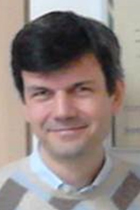
Vassilios Constantoudis
Dr Vassilios Constantoudis is researcher in the Institute of Nanoscience and Nanotechnology, NCSR “Demokritos”, Greece. His research focuses on the modeling and simulation of systems exhibiting complexity in time or space domain with applications in nanometrology, nanotechnology, molecular physics and computational linguistics. He is also interested in the interface of science with society and culture with emphasis on the dialogue and osmosis of science with religion and art.
Dr. Constantoudis is the co-author of more than 100 publications in peer-reviewed scientific journals and proceedings which have been cited more than 1400 times with h-index=21. He is co-founder of the Hellenic Society for Science and Religion and of the spin-off company Nanometrisis.
Full CV: http://inn.demokritos.gr/en/prosopiko/v.constantoudis/
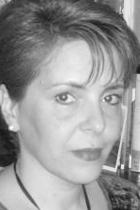
Eudoxie Delli
Eudoxie Delli studied Law and Philosophy at the National and Kapodistrian University of Athens. She received her Postgraduate Diploma (DEA) in the History of Philosophy from the University of Paris X - Nanterre. Holding two Postgraduate scholarships, she carried on her studies at the École Pratique des Hautes Études (4th Section) in the History of Philosophy, Religions and Systems of Thought. In 2011 she obtained her Ph.D. with Distinction from E.P.H.E - Sorbonne for her research on the relations between Byzantine Philosophy and its ancient sources in the work of the Byzantine scholar Michael Psellos.
Her main research areas are the Philosophy of Late Antiquity and especially Neoplatonism and its reception in Patristic Literature and Byzantine Thought from an anthropological perspective; mentalities and systems of thought in Late Antiquity and the Middle Ages; and relationship of ancient Philosophy and Orthodox religion and spirituality.
She has written articles for international academic collective books and translated into Greek philosophical essays and literary texts. Since March 2013 she is a Post-doctoral Research associate at the National Hellenic Research Foundation (NARSES Project, SOW Project).
Full CV: http://www.hpdst.gr/system/files/cv-delli-2013-en.pdf
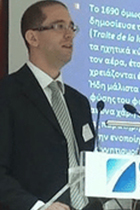
Konstantinos Kalachanis
Konstantinos Kalachanis is Research Associate in the Faculty of Physics of the University of Athens (Department of Astrophysics-Astronomy and Mechanics). He received his degree in Philosophy-Pedagogics and Psychology from the Faculty of Philosophy of the University of Athens. Also he holds a PhD in Philosophy from the University of Athens and a Master’s degree in “Environment and Health, Capacity building for decision making” from the Medical School of the University of Athens. His scientific works includes 60 published articles in refereed scientific journals, in conference proceedings and scientific volumes. He has also participated in greek and international scientific conferences. Since 2012 he has been teaching the course “Bioethics” to the students of the Post Graduate Program “Environment and Health, Capacity building for decision making” and the course “Environment and Cancer” to the students of the Post Graduate Program “Neoplasmatic Diseases: Modern Clinical-Pathologoanatomical approach and Research”.
Full CV:
https://www.researchgate.net/profile/Konstantinos_Kalachanis
http://uoa.academia.edu/KostasKalachanis
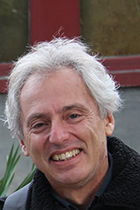
Efthymios Nicolaidis
Efthymios Nicolaidis is Research Director of the Programme “History, Philosophy and Didactics of Science and Technology” of the Institute of Historical Research / National Hellenic Research Foundation. He studied Physics and History of Science in France. His main publications concern the relations between science and religion, the history of science in Byzantium and the Ottoman Empire, and the spread of Modern European science. He is the author of the overview Science and Eastern Orthodoxy, Johns Hopkins University Press, 2011. He coordinates the project “Science and Orthodoxy around the World”(http://project-sow.org/). He is the President of the International Union for the History and Philosophy of Science.
Full CV : http://www.eie.gr/nhrf/institutes/inr/cvs/cv-nikolaidis-en.pdf
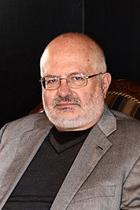
Ronald Numbers
Ronald Numbers received his Ph.D. in History of Science from University of California, Berkeley in 1969. Currently he is emeritus Hilldale and William Coleman Professor of the History of Science and Medicine at the University of Wisconsin–Madison. From 1989 to 1993 he was editor of Isis, an international journal of the history of science. With David Lindberg, he has co-edited two anthologies on the relationship between religion and science. Also he is currently editing the 8-volume Cambridge History of Science.
Full CV : http://project-sow.org/sites/project-sow.org/files/full_cv_r.numbers.pdf
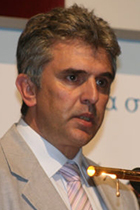
Petros Panagiotopoulos
Petros Panagiotopoulos studied Physics and Theology at the Aristotle University of Thessaloniki and holds a Postgraduate Diploma and PhD from the Faculty of Theology of A.U.TH. He’s collaborating with the Theology Department in Students’ Internship (Practicum) and Open Courses Programs. He works for website "Pemptousia" as Content Coach and Editor-in-chief at Religion’s section. He teaches in Theology Faculty of Christian Orthodox University in Congo (RDC). He has participated in conferences and seminars as a speaker and organizer. In the past he worked as Editor on scientific publications.
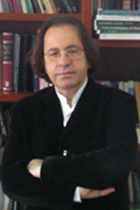
Georgios P. Pavlos
Georgios P. Pavlos is Associate Professor in the Department of Electrical and Computer Engineering of the Faculty of Engineering in Democritus University of Thrace. He teaches Physics and Philosophy. He has created and is in head of the scientific research Thrace group in Chaos and Complexity.
His scientific activity develops within the theory and applications of Complexity Science, while his philosophical activity focuses on understanding the foundations and presuppositions (mental, cognitive, epistemological and other) of science, as well on the philosophical interpretation of modern scientific knowledge.
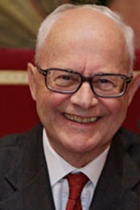
William R. Shea
William Shea is a Galileo Professor of History of Science Emeritus at the University of Padua. He studied at the University of Ottawa and the University of Cambridge where he received his Ph.D. He was Fellow of Harvard University before becoming Professor of History and Philosophy of Science at McGill University in Montreal and the first incumbent of the Hydro-Quebec Chair. He later taught at the University of Strasbourg from 1996 until 2003 when he was appointed Galileo Professor of History of Science at the University of Padua. He served as Chairman of the Standing Committee for the Humanities of the European Science Foundation, an association of 72 major research organizations from 30 countries in Europe, and he belongs to several academies including the Academia Europaea, the Royal Society of Canada, and the Royal Swedish Academy of Sciences, which awards the Nobel prizes, and where he is a member of the Committee on Physics and Astronomy. He is Past President of both the International Union of History and Philosophy of Science and the International Academy of the History of Science. In 2014 he was elected to the national academies of Bologna and Modena. He is the author of 10 books, the co-author or editor of 25 other books, and he has published some 180 scholarly articles that have appeared in 10 languages. His books have been translated into French, German, Spanish, Dutch, Korean and Japanese. His play in Italian, Intervista a Galileo, was premiered at the Teatro Bonci of Cesena in April 2015. He has been Visiting Professor in several universities including the University of Rome, the Ecole des Hautes Etudes en Sciences Sociales in Paris, the Institute for Advanced Studies in Berlin, the National University of Mexico, the University of Sao Paolo, and the Institute of Advance Studies in Bangalore, India. He has lectured extensively in North and South America, in Europe and in the Middle East. He was Visiting Scholar at the Max Planck Institute of History of Science in Berlin in 2015.
Full CV : http://project-sow.org/sites/project-sow.org/files/fullcv_shea.pdf
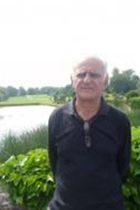
Dr. George N. Vlahakis
Dr. George N. Vlahakis is assistant professor on History of Science and Philosophy in the Hellenic Open University. His research focuses on the study of the history of science in the Southeastern Europe from the early 18th century up to the end of the 20th century.
His main research interests are history of physics, popularization of science, science and literature and science and religion. He has published several articles in peer-reviewed scientific journals and books in Greek and English. He is member of several scientific societies, secretary of the History of Physics Group/ European Physical Society and president of the Commission on Science and Literature DHST/IUHPST.
Full CV: http://www.hpdst.gr/system/files/c-vlahakis-2013-en.doc

Dr. Konstantinos Zormpas
Dr. Konstantinos Zormpas is the Director General of the Orthodox Academy of Crete. He was awarded a Degree in Political Sciences (Strasbourg 1981), a Degree in Sociology (Catholic Institute and Sorbonne, Paris 1987) and a Degree in Theology (Theological Institute of Saint Serge, Paris 1987). He received basic and postgraduate studies in the Sociology of Christianity and in Pastoral Sociology. He then attended postgraduate studies at the Theological School of Thessaloniki in the Department of Ethics and Sociology, where he was awarded his Doctorate in 1996, graded as ‘excellent’. He worked as a scientific associate of the Orthodox Academy of Crete from 1988 until 1999, contributing to the work of the local Church, through the scientific research of theological, social and other ecclesiastical affairs, to the development of educational and training activities, to the preparation and realization of conferences and various inter-Orthodox and inter-ecclesiastical meetings. He has actively participated with proposals and interventions in the course of the European Union, through the various committees of the Council of European Churches, as well as the Council of Europe. He served on the permanent Greek delegation to the European Union in Brussels for educational and ecclesiastical affairs. Among his works are ‘The human value in social utopias’, ‘Europe-Religion-Culture’, ‘Politics and Religions’, ‘Ecological Crisis and Education’, etc.
Venue
The Summer School will be held in the island of Crete. The lectures will take place in the Orthodox Academy of Crete (OAC) located in Kolympari in the Chania prefecture.
The Orthodox Academy of Crete is a public welfare institution. It functions in canonical relationship with the Holy Metropolis of Kissamos and Selinon, and it operates under the spiritual auspices of His All Holiness the Ecumenical Patriarch of Constantinople.
The basic mission of the OAC is the dialogical witness and the liturgical ministry of Orthodoxy in the modern world; therefore, it is devoted to the cultivation of the spirit of dialogue between Orthodoxy and other confessions and religions, but also between faith, science and culture.
For more information on the venue please visit the website of the Orthodox Academy: http://www.oac.gr/en/
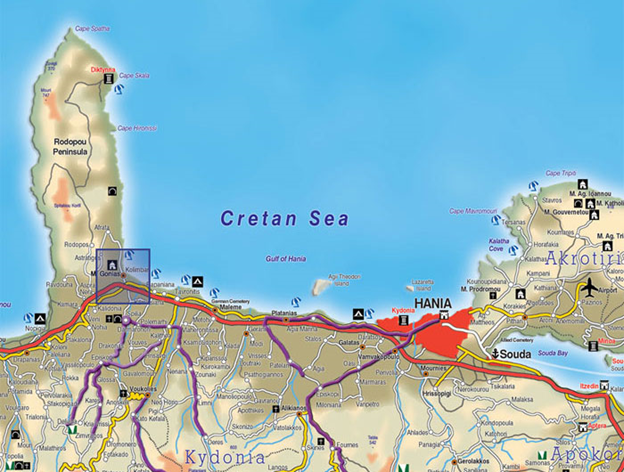
Access
The Orthodox Academy of Crete is 39 km from the airport of Chania and 24 km from the city of Chania.
From Athens, you can reach Crete either by plane from Athens International Airport Eleftherios Venizelos or by boat from Piraeus port (For further information, please consult http://www.openseas.gr/en/trip-info). Moreover, during the high season (April to early November) there are several direct flights from European airports to Chania and Herakleion.
By bus from the airport to the city of Chania and from there, by another bus, to Kolympari (Public Bus Service [KTEL] of Chania: http://www.e-ktel.com/en/ )
By bus from the airport to the city of Herakleion and from there, by another bus, to Chania http://www.ktelherlas.gr/en/. From there you will take the bus to Kolympari.
Please note that the OAC is 1.5 km from the bus stop in the center of Kolympari, which you can do by either walking, local bus or taxi.
If you need any assistance for your travel arrangement, you could contact us by email ([email protected]).
The area around
Kolympari is a waterfront village with a long, pebble beach. It is is 34 minutes driving distance from the city of Chania and approximately 15 minutes from the tourist resorts of Platanias and Agia Marina.
Within a short walking distance (1 km) you can visit the 17th century Gonia Monastery, which was built as a fortress overlooking the bay and is surrounded by verdant vegetation. Today it hosts an important collection of precious post-Byzantine icons, relics, and other rare religious treasures.
By boat from Kolympari you could also visit the ruins of the ancient town of Diktynna, the Gramvousa island with the Gramvousa castle at its top, and the beach Balos. Balos can also be reached on foot from Kolymbari. The nearby beach of Falasarna (aprox.20km) is considered as one of the best in the island. The famous Elafonissi beach is within one hour driving distance from Kolympari.
For the ecclesiastical monuments of Crete and the proposed religious routes you could consult the http://orthodoxcrete.com/en/crete/
Accomodation
Accommodation is included in the fees paid for the course. The OAC has 60 rooms which have either two beds or one double bed. All rooms have their own bathroom and most have a sea-view and air-conditioning.
For photos please download the attached pdf.
Fees
There is a participation fee of 650 Euros. The fee includes Summer School courses, course material, accommodation in double rooms with breakfast and daily lunch. If you wish to stay in a single room there is an extra charge of 72 Euros (total amount for participation fees 722 Euros).
Students are individually responsible for their transportation and living expenses on Crete island.
Should the candidate be accepted, the amount is required to be paid the latest by 15 March 2017.
Cancellation/fee policy
Contact
For further information, please contact us by email at [email protected], or by phone (Mrs V.Kollia, +30 210 7273767)
Iconography Seminar // 12-16 June 2017
An Iconography Seminar will be organised from 12 till 16 June 2017. The participants will follow lectures on the theoretical framework of Byzantine Iconography and will learn and practice the techniques that are being applied during the different phases of its creation.
There is a participation fee of 500 Euros. The fee includes the courses, course material, accommodation in double rooms with breakfast and daily lunch.
For more detailed information on the content of the Seminar pleaseconsult http://www.oac.gr/en/iconography/iconography-seminars/
Please note that the course will be available for a limited number of participants. The deadline for registration is 30 April 2017.
For further information on the course and the registration please contact the OAC at [email protected]